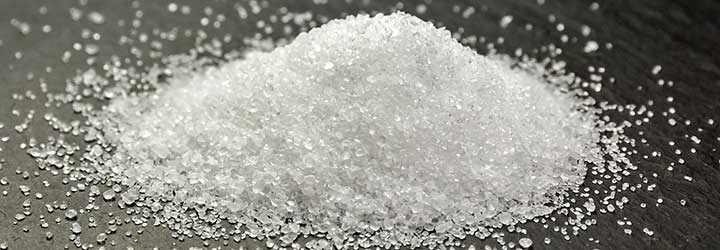A common question that’s asked is, Xylitol vs Stevia? What should you choose for a sugar alternative?
What is Stevia?
Stevia comes from the Stevia rebaudiana plant, which is native to Paraguay, but can now be found around the world. The sweetener is mainly produced from the leaves of the plant. Stevia is intensely sweet and 1 teaspoon of it is equivalent to 1 cup of sugar. It can be anywhere from 200 to 350 times sweeter than sugar.
Stevia has been popular in Japan for over 40 years but was approved as a food additive in the US since 2008. Since then it has grown in popularity by about 400% globally.
What are the Benefits of Stevia?
Stevia sweeteners usually have zero or few calories per serving. Stevia is a good option for those with diabetes because it stevia doesn’t contribute calories or carbs to the diet, which affect the blood glucose levels. This also makes it a good option for weight control.
What is Xylitol?
Xylitol, like stevia, comes from plants. It’s found in the fibers of many fruits and vegetables like cornhusks and berries. It’s even found in small amounts in the human body.
Xylitol is naturally sweet and can be used in a 1:1 ratio for sugar, which makes it more convenient than stevia for cooking and baking. When substituting xylitol, you won’t have to figure out the conversion, just substitute the same amount.
What are the Benefits of Xylitol?
Xylitol has very minimal effect on blood sugar, so it’s good for diabetics. Xylitol, when used regularly has dental benefits as well. Getting five grams of xylitol per day can help improve oral health, making it difficult for bacteria to stick to the teeth and cause cavities and dental decay.
Xylitol is also a prebiotic, which means it helps encourage good gut bacteria. Sugar, however, encourages the growth of unhealthy bacteria and yeast. Xylitol is beneficial because unlike some sweeteners, it doesn’t encourage the growth of yeast in the gut.
So Xylitol vs Stevia, Which Should You Choose?
It’s really a personal choice, and we would recommend talking to your doctor about which fits into your diet better. We obviously love xylitol due to its varying health benefits and its easy 1:1 substitution in cooking and baking. Visit our products page to find out the best xylitol sweeteners and where to find them.
Related Articles
Understanding the Importance of Xylitol Dental Health
Can xylitol play a role in your dental care program? People around the world are now using this all-natural sweetener. While it was discovered in the late 19th century, xylitol didn’t really begin making its way into the public consciousness...
Xylitol Animal Studies
Publication: IPCS Inchem Read original study here. XYLITOL Explanation Toxicological monographs were issued in 1977 and 1978 (see Annex I, Refs. 44 and 49). Since the previous evaluation, additional data have become available and are summarized...
Sugars and Sweeteners
The Canadian Diabetes Association compiled information on which sweeteners increase blood glucose levels, and which do not. View the tables here. Related...
Reasons to Use Xylitol Chewing Gum
The right xylitol chewing gum can help you boost your overall oral health. Beginning in Finland in the 1970s, researchers began studying the diverse benefits of xylitol and were, in fact, quite surprised by what xylitol had to offer. Xylitol...
The Effects of Equal Caloric Amounts of Xylitol, Sucrose, and Starch
The effects of equal caloric amounts of xylitol, sucrose and starch on insulin requirements and blood glucose levels in insulin-dependent diabetics. By Hassinger, Suer, Cordes, Krause, Beyer, and Baessler. Diabetologia, 1981 July, pages 37-40...
Dental Journals on Xylitol
Randomized Controlled Trial: A Randomized Controlled Clinical Trial Comparing A Remineralizing Paste with an Antibacterial Gel to Prevent Early Childhood Caries KA Plonka, ML Pukallus, TF Holcombe, AG Barnett… – Pediatric dentistry, 2013...






Xylitol is also a natural bio-film buster. Many of the most-debilitating and nasty bacterias and viruses, like those that cause Lyme’s Disease, and its many co-infections are resistant to antibiotics, antivirals, and natural treatments (e.g., essential oils, herbs, and the like). One big reason is their ability to quickly form protective, cocoon-type films around themselves, in which many thousands of the bacteria and viruses can survive for weeks or even months! Along with any treatment for LD and other sophisticated, serious, chronic illness, a biofilm buster is a MUST. You must bust open the biofilms so your treatment(s) can get to and kill what is making you sick
Yes it does this, but it takes some time, and you need to use is at least four times a day. The reason for its working on biofilm is that it is able to get into the bacterial lectins they use to hang on to us. Xylitol is not what they normally hang on to but it is flexible and can fit into most such sites. The issue is discussed further in “No More Allergies, Asthma, or Sinus Infections”, available at Amazon.